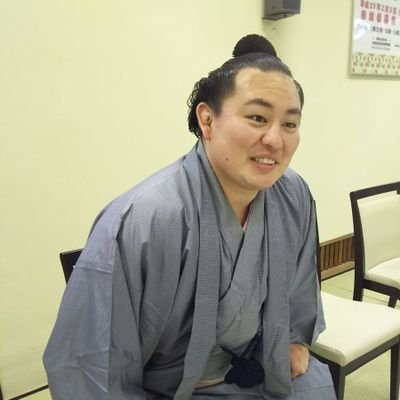In the world of sumo, the spotlight shines on the wrestlers in the ring. But behind every victorious match stands a group of unsung heroes. Tanimachi are the silent supporters who offer crucial financial and personal support to wrestlers, especially those struggling in the lower ranks. Understanding their role reveals the deeper layers of tradition and loyalty that define Japanese sumo culture.
Understanding What “Tanimachi” Means in Sumo
A Tanimachi is someone who provides financial or material support to a sumo wrestler or stable. In sumo, young wrestlers often struggle to earn a stable income until they are promoted to the Jūryō or Makuuchi divisions. Thus, external support becomes essential to continue daily life and rigorous training.
The essence of Tanimachi support is more than financial transactions. It includes offering meals, providing clothing, and even giving rides to the hospital—playing a role almost like a family member. They also offer moral support, encouragement, and advice, creating a deep relationship of trust with the wrestler.
| Type of Support | Purpose |
|---|---|
| Food, clothing | Daily living essentials |
| Travel expenses | Support for tournaments and regional tours |
| Moral support | Easing anxiety and loneliness |
| Medical aid | Injury treatment and health care |
| Event participation | Motivation and morale boosting |
In this way, Tanimachi act as a foundation for a wrestler’s career and livelihood.
Why Is It Called “Tanimachi”? The Etymology Behind the Name
There are several theories about the origin of the word “Tanimachi”, but the most widely accepted one relates to the Tanimachi district in Osaka. In the Meiji period, many sumo stables were located in this area. A doctor living there became known for treating wrestlers for free, not for profit but out of genuine support. This earned him the nickname “Tanimachi-sensei.”
| Origin Element | Explanation |
|---|---|
| Tanimachi (Osaka) | Area with many stables |
| Doctor’s aid | Treated wrestlers free of charge |
| Reputation | Became known in the sumo community |
| Spread of usage | The word “Tanimachi” began referring to similar supporters |
This story reflects a deeply ingrained Japanese value of supporting others with no expectation of return, rooted in the spirit of obligation and compassion.
What Do Tanimachi Actually Do? Specific Roles and Involvement
In the sumo world, the activities of a Tanimachi go far beyond monetary support. They extend to all aspects of a wrestler’s life and development.
| Category | Examples of Support |
|---|---|
| Financial | Supplementing income, providing allowances |
| Goods | Practice gear, belts, yukata, footwear |
| Medical | Connecting with doctors, covering treatment costs |
| Transportation | Funding travel for regional tours and tournaments |
| Food | Providing meals or inviting wrestlers for dinners |
For lower-ranked wrestlers, the Tanimachi can be a lifeline. Without this support, many could not survive the early stages of their career.
Some Tanimachi support entire sumo stables. In such cases, they organize or sponsor events like birthdays, New Year’s gatherings, or celebration parties.
| Activity | Target |
|---|---|
| Party organization | Fans, sponsors, local patrons |
| Gift giving | Providing food and supplies to all wrestlers |
| Holiday support | Year-end or New Year gifts and greetings |
| Event hosting | Organizing public talks or interaction events |
Thus, Tanimachi support both individuals and the broader stable structure.
Tanimachi’s Role in Sumo Culture
The Tanimachi are not just individual sponsors; they are part of the infrastructure that sustains sumo culture. During regional tours, for instance, local Tanimachi often arrange accommodations, meals, and even help with PR activities.
| Regional Tour Support | Responsibilities |
|---|---|
| Accommodations | Booking lodging for wrestlers and staff |
| Meals | Preparing meals during the stay |
| Local promotion | Distributing flyers and promoting the event |
| Audience support | Helping sell tickets and gather fans |
| Souvenir prep | Creating gifts and commemorative items |
Through such involvement, Tanimachi also help embed sumo deeply into regional communities.
Challenges and Risks of the Tanimachi System
Though built on goodwill, the Tanimachi system has risks. Key concerns include overdependence and inappropriate influence.
| Risk | Description |
|---|---|
| Financial dependence | Wrestlers losing autonomy |
| Intimate involvement | Risk of overreach or interference |
| Expectations | Imposing return favors |
| Rivalry | Competition between Tanimachi can create tension |
| Blurred lines | Public-private boundaries may become unclear |
To manage these, the Japan Sumo Association has introduced guidelines to help keep the Tanimachi relationship healthy and transparent.
Preserving and Evolving the Tanimachi Culture
Tanimachi are unsung heroes of the sumo world. Going forward, it’s vital to preserve this tradition while updating it to match modern values.
| Practice | Purpose |
|---|---|
| Organized backing groups | Transparent, rule-based support |
| Youth education | Sharing the value of cultural support |
| Community partnership | Regional collaboration in support efforts |
| Transparency | Reporting usage of funds and activity openly |
| Ethics training | Encouraging responsibility on both sides |
Rather than discarding the system, we must redefine and modernize Tanimachi support for future generations.
Conclusion
Tanimachi are more than donors. They are cultural pillars that help uphold the tradition of sumo by backing wrestlers both financially and emotionally. Their presence is vital, particularly in a sport where young athletes start with very little.
Still, the closeness of the relationship brings risks. That’s why maintaining mutual respect and boundaries is key. As sumo evolves, so too must the role of the Tanimachi. And if done right, this unique form of support can continue to enrich the sport and the lives it touches.





コメント